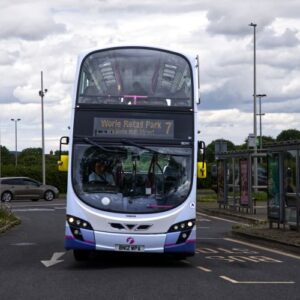
More marked bays, better parking – and Dott’s Yate rental trial extended
A trial of rental e-bikes and e-scooters in Yate and Chipping Sodbury is set to be extended until September.
Top line: Parental involvement can help to reduce the risk of accidents amongst young drivers. Helping parents to impose restrictions on early teen driving reduces risky behaviour and increases positive outcomes.
Crash risks decline with increased experience, but the more newly licenced teenagers drive, the greater their exposure to risk. Teenagers between 16 and 19 years are more likely to die or be injured as a result of motor vehicle crashes than from any other cause. Hence, the dilemma facing policy makers and parents is how to provide young drivers with driving experience without unduly increasing their crash risk. Graduated Driver Licensing (GDL) policies in some US States serve to delay licence holding according to age and then limit exposure to the highest risk conditions, allowing young drivers to gain experience only under less risky driving conditions. Recognition of the elevated crash risk of teenage driving, particularly under high-risk conditions such as at night and with teen passengers has stimulated many US states to adopt GDL programmes. Research indicates that certain components of GDL programmes, including delayed ages at permit and provisional licence, increased supervised driving, and night time driving restrictions, have resulted in reduced rates of risky teen driving behaviors, crashes, violations, and overall amount of driving. A similar strategy is needed to guide parents. Parents do not appear to appreciate just how risky driving is for novice drivers and tend to exert less control over their teenage children’s driving than might be expected.
Studies show that greater parental involvement is associated with less risky driving behaviour by teens. More frequent parental supervision and restricted teen access to a car are associated with less likelihood of teens speeding and more likelihood of their using seat belts when driving. Parent–teen driving agreements or contracts are a potentially important tool for framing and promoting parental management practices regarding teen driving.1 Driving agreements are based on the principles of behavioural contracting and such contracts have been employed successfully in a wide range of contexts and with a wide range of behaviors. Behavioural contracts provide a structure that can enable the establishment of expectations, performance standards, consequences for noncompliance, and the period of successful compliance required to earn additional privileges.
The Checkpoint Programme was designed to promote parental management of teen driving through the use of staged persuasive communications in the form of newsletters.2 The strengths of the Programme include the delivery of multiple messages that are tailored and timed to correspond to the teen’s driving experience and the focus on a Driving Agreement to organize parental management of teen driving. Driving limits were assessed shortly after teen licence holding and again after three months by asking parents and teens if they had driving limits on types of roads, number of passengers, and curfew on weekends. Both parents and teens in the intervention group reported significantly greater limits on teen driving at commencement of licence holding and three months post-licence holding. Increasing parental management may be an important influence on the reduction of teen driving risk.
1 Simons-Morton, B., Hartos, J. 2003 How well do parents manage young driver crash risks? Journal of Safety Research, 34: 91-97.
2 Simons-Morton, B., Hartos, J., Leaf, W. 2002 Promoting parental management of teen driving, Injury Prevention, 8 (Supp; II): ii 24-31.

A trial of rental e-bikes and e-scooters in Yate and Chipping Sodbury is set to be extended until September.

A series of upgrades at Worle Interchange will soon begin to improve accessibility, safety and the overall experience for bus...

Initial work that will allow a busy junction in Broadmead to be improved will get underway later this month.

To help plan construction work to not only refurbish Bedminster Bridges, but to transform how people travel over them, investigatory...

The Mayor and council leaders have today unveiled a new vision for the future of transport in the region.